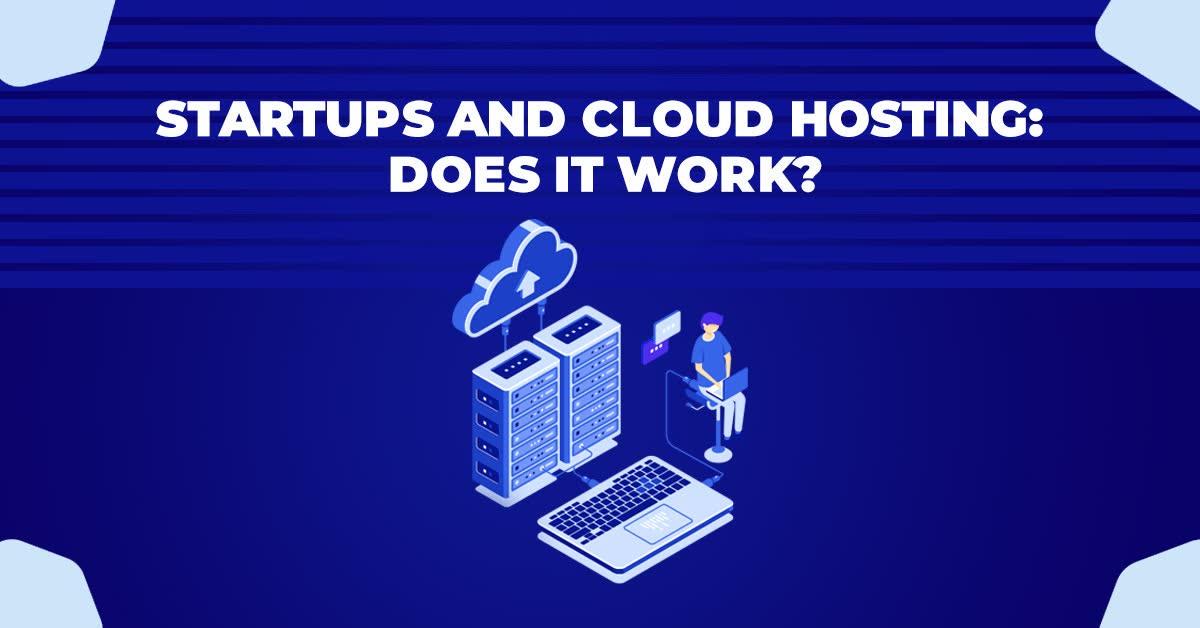Benefits Of Cloud Hosting For Securing Your Data
Here on hosting servers, each website owner stores a sizable amount of important data. Ensuring the security of this data is extremely important given the rise in cyberattacks as well as data breaches. You are in charge of protecting all client data given to you as the owner of the website. Data security refers to an infrastructure design in which data is exclusively stored at which the owner chooses (often on a hosting server) and cannot be accessed by anyone else in absence of the owner’s consent.
With cloud hosting, as opposed to your computer or server, all data is kept in a cloud, often referred to as a virtual server. The network of linked virtual, physical cloud servers which hosts the website, forces the data to be stored across various data centers. You shouldn’t have an issue losing your data if you do regular and trustworthy backups. In contrast to conventional hosting, in which data is kept on such a single server, this approach is beneficial. If the business doesn’t have a trustworthy and effective backup strategy ready, when a certain server is compromised, it might cause a permanent loss of data.
Overview of Cloud Security
The use of cloud storage has become increasingly popular in both personal and professional settings. The convenience and accessibility of cloud storage have made it a go-to solution for many individuals and businesses. However, its popularity has also made it a target for malicious actors. In order to protect data stored in the cloud, individuals and businesses must take measures to ensure that their data is secure. One way to increase cloud security is to encrypt data before it is uploaded to the cloud. In order to keep the data of an organization safe and secure, the IT team must implement various security measures.
One of the most effective ways to do it is by using cloud security, which is a method of securing data that is stored in the cloud. Cloud security can be used to protect data from unauthorized access, as well as to ensure that data is not lost or corrupted. In order to effectively use cloud security, organizations must have a clear understanding of the risks associated with storing data in the cloud.
As organizations increasingly move data and applications to the cloud, security teams are tasked with securing this new environment. The shared responsibility model means that Cloud Service Providers (CSPs) are responsible for the security of the cloud but customers need to secure their data and applications. This requires a different set of tools and processes than on-premises security. Your data will always be accessible and securely kept thanks to an efficient program of security safeguards called ‘cloud security’.
Multiple levels of firewalls, client authentication mechanisms, legal compliance standards and other security measures are used. The most effective approach to keeping data is on the cloud, where there is a wide variety of protection available.
Advantages of Cloud Hosting On Websites
In case the server is compromised, data saved in typical hosting can easily be stolen. However, since the data is just not kept in a solitary or abandoned dwelling, cloud-hosted websites are challenging to attack. In order to take the data, the hacker would need to access many servers, which would be a more time-consuming procedure.
- Backup System
The data is distributed and regularly backed up between numerous machines thanks to the robust backup solution offered by cloud hosting. This guarantees a much more secure and safe data hosting service. The data is constantly accessible and the likelihood of losing it is minimal.
- Protection of Data
The fact that cloud hosting safeguards the data using multiple machines rather than a single server is one of its key benefits. In comparison to the virtual hosting setup, the danger of losing the data as a result of a breach or hacker attack is substantially higher with such a single server option. By doing this, you lessen the likelihood of your data becoming a victim of an unanticipated hardware issue or attack. The data will move from one server space to another.
- Safety Concerns
Since cloud hosting initially entered the market, safety issues were brought up. Among these are higher risks of DDoS (distributed denial-of-service) assaults, data loss, and malware insertion attacks.
In order to address these issues, web hosting businesses have implemented DDoS prevention software, malware protection, antivirus, and firewalls over the years. Most of these issues are resolved today. Because of this, cloud hosting is a better option than traditional hosting in regard to data security.
- Mirroring of Data
In hosting services, all of the data is continuously mirrored. The technique of duplicating data from one server to a different one is known as ‘data mirroring.’ Actual data mirroring offers the advantages of data never being lost because of a hardware malfunction and always having a backup of your data in case it is stolen.
While preventing data theft is essential, disaster recovery planning and reliable data backups should also be used to provide complete data protection. All of these are handled by cloud hosting.
- Backups across Platforms
The act of preserving any given information’s three copies in a couple of independent, physically unrelated data centers is known as backup across platforms. This is crucial for the storage of data because it prevents data loss even if the entire data center is attacked online. From a different data farm, users can still have access to or recover the data. The backup that is kept in many data centers is continuously updated. Therefore, manual backups are not necessary.
- Firewall Software
The network and computer are protected by a firewall from illegal access through the public internet. Previously, firewalls were implemented as physical devices between incoming web routers and servers. However, now the server itself has a firewall application installed.
The basic function of the firewall used to block outgoing and inbound traffic, although this has now been complemented by virus and malware screening, as well as hacking prevention systems.
Conclusion
Cloud security is more important now than ever before. The cloud has become an integral part of our lives and we rely on it for everything from storing our photos to managing our finances. But as our dependence on the cloud grows, so does the risk of data breaches and other security threats. That’s why it’s important to choose a cloud provider that takes security seriously.
In today’s business world, many companies are turning to the cloud to store their data. The cloud offers many advantages, such as being able to access data from anywhere and cheaper storage costs. However, the cloud also has its disadvantages, such as security risks. But overall, it is of great importance and a necessity.






































